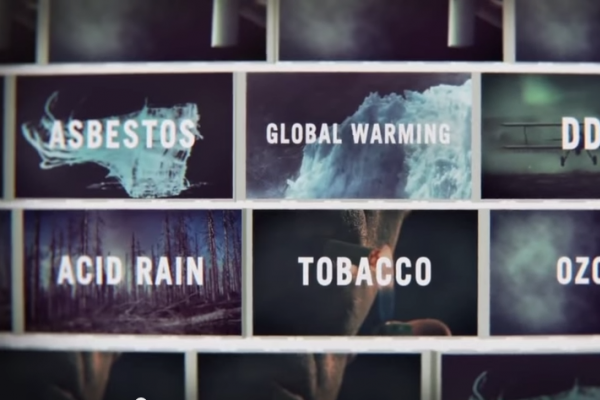In one scene in the new documentary Merchants of Doubt, Michael Shermer, the publisher of Skeptic magazine, explains what he thinks is the underlying factor behind climate change skepticism.
“It isn’t about the science,” Shermer, a libertarian and former skeptic who came around on the issue in 2006, tells director Robert Kenner.
“It’s about me being a consistent team member; showing the members of my tribe that you can count on me.”
Tribalism is an important part of the equation. But Kenner, whose previous film was the well-regarded Food, Inc., believes corporate spin is just as much to blame.
Merchants of Doubt aims to show viewers how the same PR tactics that kept the tobacco industry thriving for decades are now being used to encourage climate change skepticism and denial. While the film does important work in helping audiences understand how paid representatives spread misinformation, it doesn’t do enough to address the tribalism that may keep the film’s most necessary audiences from seeing it.
READ Sojourners' interview with Merchants of Doubt Director Robert Kenner here.
To his credit, Kenner does an excellent job at making the subject matter appealing. He uses the framework of close-up magic as a metaphor for the way PR representatives work to cover up industry-damaging facts, first for tobacco, and then for coal, oil, and other clients. He interviews journalists, scientists, and lobbyists whose stories are at once fascinating and infuriating. There are even some sources, like conservative former South Carolina Rep. Bob Inglis, who manage to help the film build bridges with audiences whose tribal identity might require them to skew towards climate skepticism.
Read the Full Article

